Most regions of the world produce signature beauty and personal care ingredients. Chinese herbs, for example, play a role in cuisine and skincare formulations dating back thousands of years. Now, it is Africa’s turn. Africa’s indigenous crops are starting to gain global attention in the food and drink industry. The continent’s native species – grains like teff, millet and sorghum, shrubs like rooibos and fruits like baobab – tend to be more nutritious and climate appropriate than many replacement crops.
As food and drink products featuring superfoods and ancient grains increase in global popularity, we’re seeing these ingredients migrate from cuisine to personal care products. The soap category, for example, is just discovering these ingredients and there is an opportunity to promote them as the next wave of food-based skincare soaps.
Ingredient to watch: Rooibos
Rooibos is a bush used to make a caffeine-free red tea, which is claimed to cure headaches, insomnia, asthma and eczema. Rooibos tea has gained popularity in Japan for its anti-ageing benefits, and is thought to reduce the appearance of wrinkles. This gives it an especially compelling skincare positioning, since its consumption is already associated with Mintel’s Beauty from Within trend. It is finding a place in topical formulas because of its high flavonoid content, as well as high levels of vitamin D and zinc. Skincare brands using rooibos tout its ability to combat the impact of pollution, while its low toxicity profile makes it good for sensitive skin. With 56% of rooibos soap launches over the past five years, South Africa is currently dominating the market, but more brands have an opportunity to globalize the ingredient.
[row][one_half]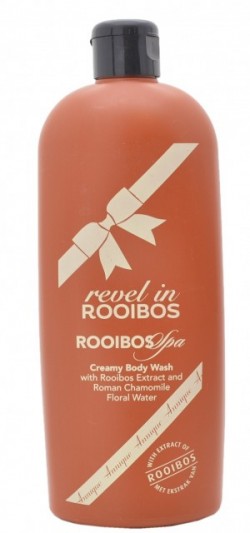
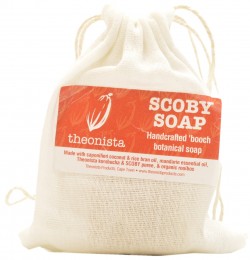
[row][one_half]Annique Rooibos Spa Revel in Rooibos – This South African brand is positioned on the skin soothing benefits of rooibos
[/one_half][one_half]Theonista Scoby Soap – Rooibos is combined with coconut and rice bran oil for high moisture benefits
[/one_half][/row]
Baobab promotes skin health
Baobab oil is often compared to argan oil in terms of skincare potential. It delivers high amounts of moisture, absorbs quickly and leaves the skin feeling soft and hydrated. Moreover, baobab oil contains omega fatty acids, which are often associated with antioxidant, anti-inflammatory and anti-aging claims along with the treatment of skin disorders, providing an extra layer of attractive skincare benefits. Those concerned with preserving Africa’s natural resources, and Malawi in particular, liken the role of baobab to Brazil nuts in the Amazon. Its cultivation presents a profitable alternative to deforestation and creates jobs for local farmers. Baobab is gaining global popularity as a food, but has yet to hit its stride as a soap and skincare ingredient. At the moment, most baobab-based soaps launched outside Africa are in the UK.
[row][one_half]
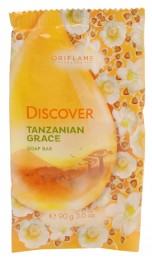
[row][one_half]Maji Mapya Rejuvenating Body Wash – Afya Zanzibar is an Australian brand offering emerging African ingredients to a global consumer base[/one_half][one_half]Oriflame Discover Tanzanian Grace – This soap bar promotes baobab more for its scent than function, but it shows that the fruit is multifaceted[/one_half][/row]
Ancient crops carry social and market development benefits
While ancient grains are just emerging in personal care, they are already influencing the diets of consumers outside of Africa. Given these grains’ proven skin benefits in food, soap and lotion, we can anticipate that their personal care role will grow. Moreover, there is an opportunity to link novel personal care products with the need to feed a hungry continent. African governments are supporting the resurgence of these crops for economic and environmental reasons. Soap and personal care brands that can innovate around the food industry’s byproducts, without directly competing with the food supply, can develop a broader social responsibility positioning around the revival of ancient grains.
[row][one_half]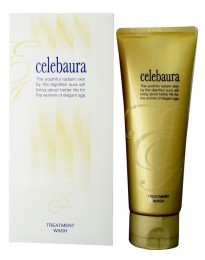
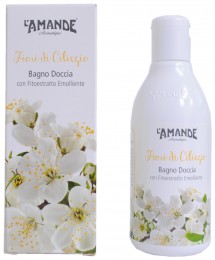
[row][one_half]Celebaura Treatment Wash – Sorghum is collagen-producing and can serve as a skin conditioner[/one_half][one_half]L’Amande Aromatique Fiori di Ciliegio – Millet oil is used for moisture and skin softening claims[/one_half][/row]
Jamie Rosenberg is a global analyst at Mintel, where he explores trends and new business opportunities across household, beauty and personal care categories. He has more than 20 years’ experience as a competitive intelligence analyst and consultant. Prior to Joining Mintel, Jamie spent 11 years with Kimberly-Clark Corporation, where he led intelligence projects supporting new product launches, corporate strategy and emerging market growth. Jamie also worked for Teltech (Now ORC International) where his role as a market opportunity consultant honed his ability to spot shifts in market trends, while exposing him to numerous businesses across the healthcare and consumer packaged goods industries.















![[WATCH] Trending ingredients to watch: Hydroxydecyl Ubiquinone](https://www.mintel.com/app/uploads/2023/06/Hydroxydecyl-Ubiquinone-艾地苯_Digital_Blog_1000x305.jpg)
![[WATCH] Trending ingredients to watch: Monk Fruit](https://www.mintel.com/app/uploads/2023/06/Monk-Fruit-罗汉果_Digital_Blog_1000x305.jpg)
![[WATCH] Trending ingredients to watch: Ginseng](https://www.mintel.com/app/uploads/2023/04/Ginseng-人参_Digital_Blog_1000x305.jpg)
![[WATCH] Trending ingredients to watch: Nonapeptide-1](https://www.mintel.com/app/uploads/2023/04/Nonapeptide-1-九肽-1_Digital_Blog_1000x305.jpg)
![[WATCH] Trending ingredients to watch: Pitaya](https://www.mintel.com/app/uploads/2023/03/Pitaya-火龙果_Blog_1000x305.jpg)



















